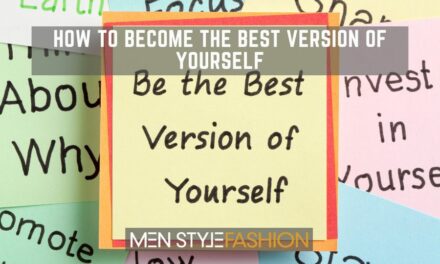Many people struggle with body image issues. A person with body dysmorphic disorder doesn’t accurately understand how they appear to others around them. You may look in the mirror and see an enormous person. However, that may be an inaccurate perception. In reality, you’re a small person. Body dysmorphic disorder is a tricky condition. Your mind is tricking you into believing that you are something you’re not. If you have the condition, it’s critical to speak to a mental health professional that specializes in eating disorders. People who have body dysmorphic disorder often have other eating disorders. Various treatments help a person love and accept their body, including dance and the arts. Here’s more about body dysmorphia, the signs and symptoms, and how to get help.
How do I look?
It’s hard to deal with body dysmorphic disorder because you may not know how you look to others. You could feel like you’re unattractive, but that’s not true. It also has a lot to do with how you feel inside. If you have low self-esteem, you may look in the mirror and see someone you don’t recognize. Body dysmorphic disorder can be painful because it could be coupled with another eating disorder such as anorexia or bulimia. You may look in the mirror, not like what you see, and use eating disorder behaviors to change how you look. Eating disorders can damage the body. If you’re engaging in these behaviors, it’s crucial to speak to a mental health professional. If you’re having trouble accepting your body image, it’s important that you stay healthy because it could lead to a more severe health condition.
Perceived flaws
One sign that you could have body dysmorphic disorder is a preoccupation with a perceived flaw. You may believe you have a big nose or beady eyes. You can’t seem to stop ruminating on these features. That obsessive thinking about your physical flaws could indicate that you have body dysmorphia. Others don’t see your nose as large or your legs as crooked. But, you are convinced that there’s something fundamentally wrong with parts of your body. You can discuss these obsessional ideas with a trained mental health professional. You may discover that they’re intrusive thoughts, and it’s a matter of reframing them to see yourself more accurately. A therapist is a great person to assist people with body image concerns.
Eating disorders are dangerous
Eating disorders are potentially deadly conditions. If left untreated, they can result in damage to the body or, in some cases, death. That’s why if you have body dysmorphia, it’s critical to talk to a therapist. You need to explore if you have other symptoms of an eating disorder. You may also have depression, anxiety, or obsessive-compulsive disorder that’s impacting how you view yourself and your body. Eating disorders are dangerous, and it’s vital to tell a therapist what’s happening that’s impacting your ability to care for your body. It’s not your fault if you have an eating disorder, but it’s crucial to confront these issues so you can feel more confident about yourself.
External validation
Due to the fact that you don’t know how you look when you have body dysmorphia, you may seek external validation from others. You might want them to reassure you that you’re attractive or don’t look “ugly.” You could heavily rely on their perception of you as a self-esteem boost. It’s understandable that you feel this way, but it’s important to learn to validate yourself. That’s why you can talk to a therapist about these concerns, and they can help you to deal with body dysmorphic disorder, an eating disorder, or any other mental health concerns you might have. It can be painful when you don’t see yourself accurately, but you don’t have to live this way. You’re not attention-seeking if you have body dysmorphic disorder. Don’t be afraid to reach out to a mental health professional if you suspect you have an eating disorder of any kind.
Talking about body image in therapy
Body image is something you can discuss with a mental health professional, and they can guide you towards ways to accept your body. Sometimes these preconceived notions you have about your body are deep wounds that have lasted for years. You may not realize where they came from or feel lost about how to confront them. You might feel discouraged and like there’s no hope when it comes to self-acceptance. Maybe you’re so used to picking apart the things you don’t like about yourself. It’s understandable that you’re afraid to work through your body image issues. However, you don’t have to do it all at once. You can take it slow when it comes to self-perception. You’re not going to love and accept yourself overnight, but with time and working on yourself in therapy, it’s possible to embrace yourself. A therapist wants to help you get to the root of the body image concerns and help you feel more confident in yourself. It will be a journey, but you’ll get there with time.















